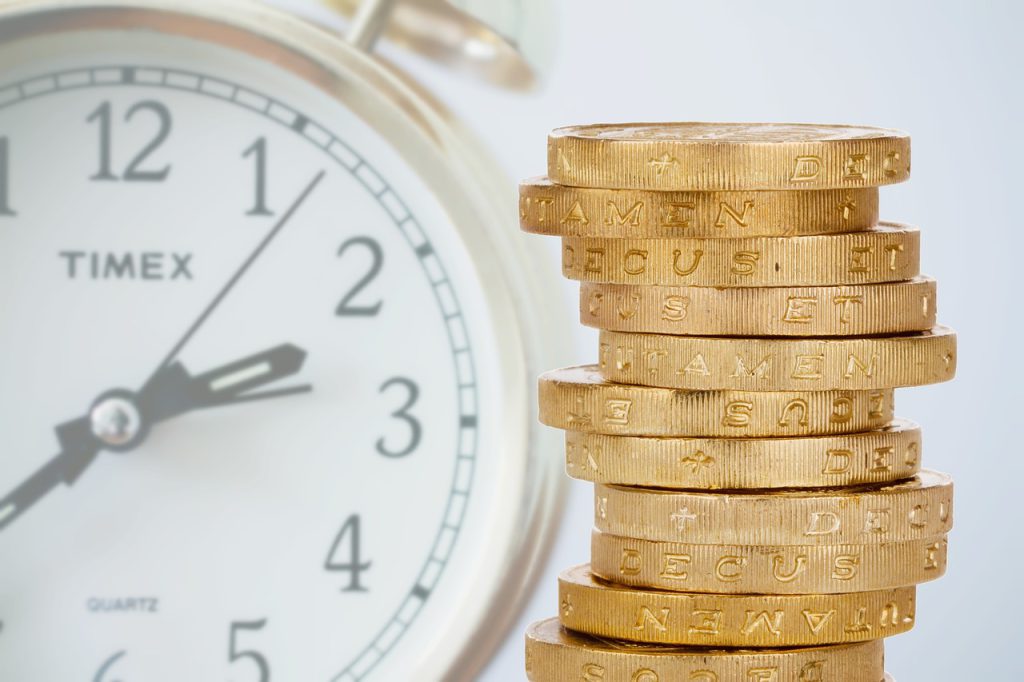
Time and Money: The Inseparable Twins

Time and money shape our lives in profound ways, exerting a significant influence on each other. As we strive to understand the relationship between time and money, we unravel a fascinating dynamic that drives our modern world.
How does money relate to time? Money, the universal currency of exchange, holds a close connection to time. In our fast-paced society, time is often equated with money. We invest time to earn money, and money, in turn, enables us to purchase time-saving conveniences. Consider a typical workday: we trade a portion of our time for a paycheck, which affords us the ability to procure goods and services that save us time, such as hiring someone to clean our homes or purchasing ready-made meals. Money amplifies our control over time, empowering us to manipulate it to our advantage.
Which is more important, time or money? This question triggers a debate that has captivated thinkers for ages. Some argue that time is the most valuable asset since it is finite and irreplaceable. Once spent, it can never be recovered. Others contend that money reigns supreme, providing the means to acquire experiences, resources, and even time itself. The truth lies in the delicate balance between the two. Both time and money possess inherent worth, and their importance varies based on individual circumstances and aspirations. For some, time spent with loved ones holds immeasurable value, while others prioritize financial stability to secure their future. Ultimately, the significance of time and money rests in the eyes of the beholder.
What is the meaning of “time is money”? Benjamin Franklin coined this adage to encapsulate the connection between time and money in a succinct phrase. It implies that time, like money, should be managed wisely and treated as a precious commodity. Just as squandering money without thought leads to financial ruin, wasting time without purpose can result in missed opportunities and regrets. Time is a finite resource that should be harnessed effectively to achieve goals and maximize productivity. Understanding the value of time, as one does with money, encourages individuals to make informed choices and prioritize activities that align with their ambitions.
An example of the intertwined nature of time and money can be found in the world of entrepreneurship. Let’s consider a budding entrepreneur with a revolutionary idea. Time becomes a critical factor in transforming that idea into a successful business. The entrepreneur invests countless hours in research, development, and networking, sacrificing personal time and leisure activities. This dedication of time is fueled by the desire for financial gains and the realization that each moment lost may result in missed opportunities. As the venture grows, money enters the equation. The entrepreneur seeks funding, makes investments, and prioritizes financial decisions. Balancing the allocation of resources, including both time and money, becomes crucial to ensure the business thrives. In this scenario, time and money are inseparable, driving the journey towards entrepreneurial success.
Transitioning to a broader context, time and money play a pivotal role in the global economy. Businesses meticulously track time and allocate resources based on profitability. Supply chains strive for efficiency, minimizing transit time to maximize profits. Time-sensitive investments yield higher returns, illustrating the correlation between time and financial gain. The cost of time, as businesses compete for market share, becomes a driving force behind innovation and technological advancements. The interplay between time and money ripples throughout industries, shaping the way we work, consume, and live.
In our personal lives, the choices we make reflect the delicate balance between time and money. When faced with decisions, we often weigh the opportunity cost of time and money. Should we spend more money to save time or invest more time to save money? For example, one might opt to pay for a premium service that expedites household chores, effectively purchasing additional time for leisure activities. Conversely, someone might choose to dedicate
their own time and effort to complete those tasks, conserving their financial resources. Such choices illustrate the constant trade-offs between time and money that we navigate daily.
In conclusion, time and money are inexorably linked, influencing every facet of our lives. Money empowers us to control and manipulate time, while time provides the canvas on which we paint our financial pursuits. The debate of time versus money ultimately depends on individual priorities and circumstances. However, understanding the symbiotic relationship between the two is vital for achieving a harmonious and fulfilling existence. Let us, therefore, embrace the wisdom of Benjamin Franklin and recognize that time, like money, is a precious asset meant to be cherished, invested, and leveraged wisely.












